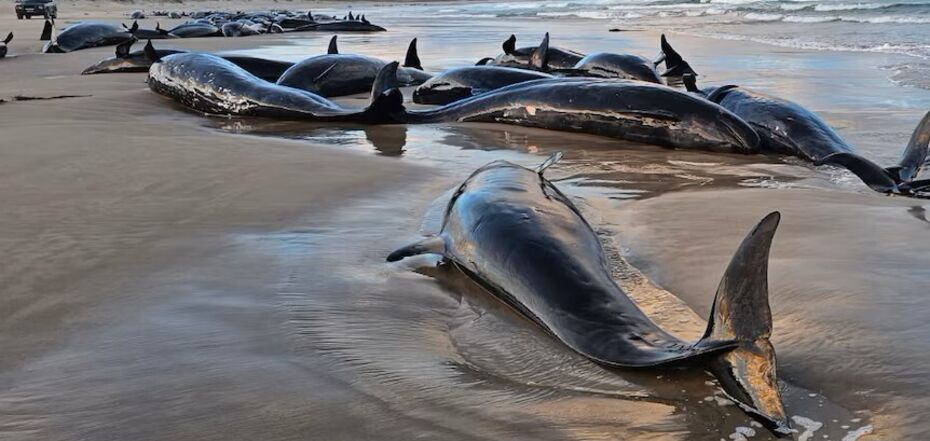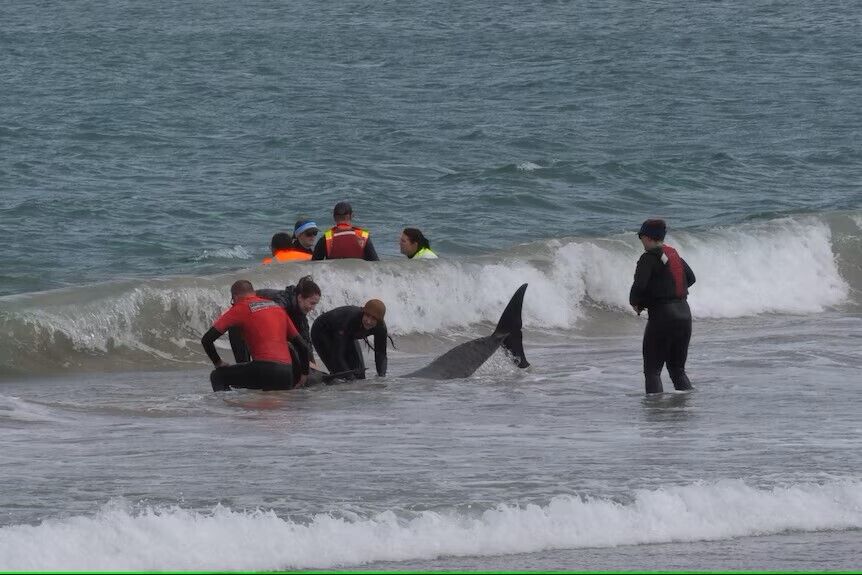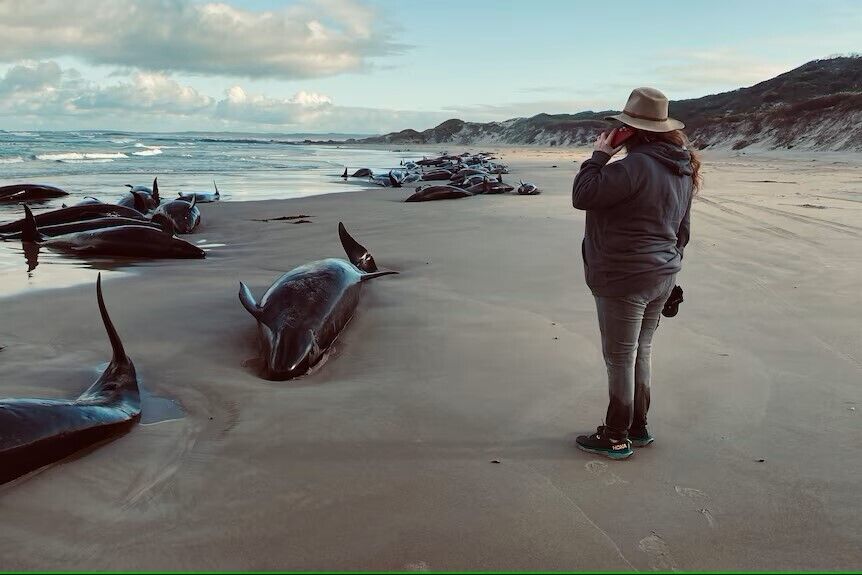News
More than 150 whales have washed up on the coast of Australia: 90 of them will be euthanized. Why a "good death" is the best way out
More than 150 pseudo-killer whales have washed ashore in the Australian state of Tasmania. Local authorities say that 90 of the surviving animals will be euthanized.
Experts tried to return the whales to the water, but the weather and the shore near the Arthur River, where they were stranded, did not favor the rescue. Therefore, in order not to torture the animals, experts decided that the pseudo-killer whales will be euthanized with the help of firearms, which is considered "the best method of world practice," ABC News writes.
According to zoologists, mass strandings of marine mammals are not uncommon on the west coast of Tasmania. However, this time the rescue situation has become more complicated. The remote location of the Arthur River meant that it was impossible to move the equipment needed to bring the pseudo-killer whales to the depths in a timely manner.
The conservationists made several attempts to return the animals to the water, but it was all in vain.
"We failed because the ocean conditions did not allow the animals to get out. After an expert veterinary assessment of the wild animals, we decided to euthanize the whales," said Parks and Wildlife Service (PWS) Chief Shelley Graham.
The expert added that in order to move the pseudo-killer whales to the water, they had to be put on a trailer and transported to a more suitable beach, and then "stabilized and trained" before trying to release them.
"It's just not a very suitable location and the weather conditions are not very favorable for that," Graham said.
Deputy Incident Commander and marine biologist Dr. Kris Carlyon confirmed that the remote location was "extremely difficult" to access for a rescue. "This is probably the most difficult location I've seen in the 16 years I've been in this role in Tasmania," he said.
Dr. Carlyon said the reason why the animals were stranded was a "million dollar question," but that a mass stranding could happen for several reasons. "One individual that is sick or disoriented can pull the rest ashore," the biologist said.
Kris Carlyon said the animals would be euthanized using firearms. "We are using international best practice and we follow a very strict operating procedure to do this," he said.
"It's a difficult situation, but when we know that this is the best outcome for the animal for reasons of their welfare, then we will definitely do the job. And we will do it as quickly and humanely as possible," Dr. Carlyon emphasized.
"The on-site team will conduct a postmortem examination and take samples of the dead animals to try to determine the cause of their stranding," said Brandon Clark of the Parks and Wildlife Service.
Only verified information is available on the OBOZ.UA Telegram channel and Viber. Do not fall for fakes!





























